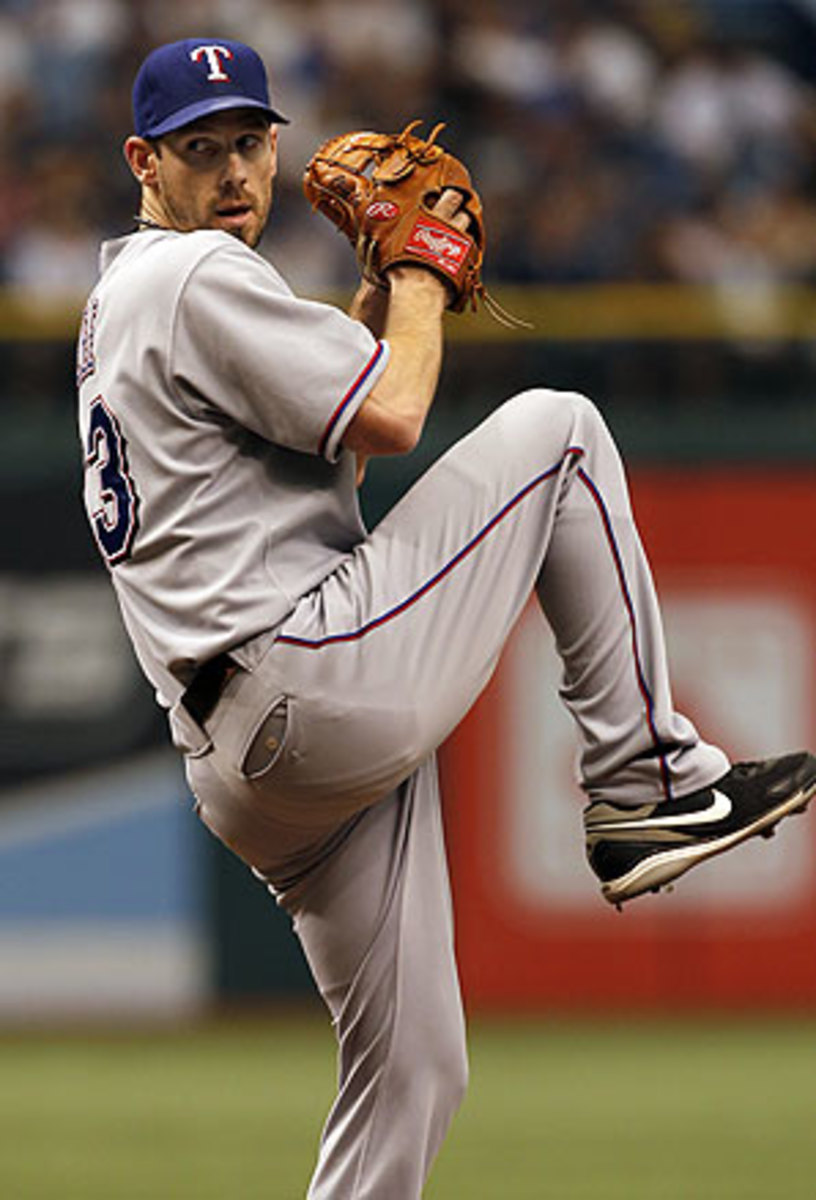Five Cuts: Reeling Rangers will have edge in decisive Game 5
On the strength of six extra-base hits, including two doubles and a homer by Evan Longoria, the Rays took Game 4 of their AL Division Series from the Rangers 5-2 and pushed the series back to St. Petersburg for a decisive Game 5 Tuesday night. It was another lesson in postseason baseball for the traditionalists. Forget manufacturing runs: ball go far, team go far. The win sets up a rematch of last Wednesday's Cliff Lee/David Price matchup. That doesn't bode well for Tampa Bay, which managed just a solo homer off Lee in seven innings, and which has hit .193 with a 564 OPS against Rangers' southpaws in this series. The Rangers surely expected to advance over the weekend, and now find themselves trying to avoid being the fourth team, and the first since the 2003 A's, to blow 2-0 lead in the Division Series.
In 1970, Orioles third baseman Brooks Robinson thrilled the baseball world with his defense in the postseason. Thirty years later, Brooks Conrad is having the opposite effect. Conrad, who played just nine games at second base in the regular season and was on the field only because Chipper Jones and Martin Prado are out with injuries, made three errors from that position last night, the last on a ground ball through his legs with two outs in the ninth that allowed the winning run to score and put the Braves down in the Division Series, 2-1. After his performance Sunday and on the heels of an error in Game 2 and some misplays on the season's final weekend (he now has eight errors in his past seven games) Bobby Cox may have no choice but to start reserve infielder Diory Hernandez at second in support of groundball machine Derek Lowe in tonight's Game 4. His other option is to start Troy Glaus, Friday night's hero, at third base with Omar Infante moving back to second. Glaus has played just nine regular season games and barely more than 40 innings at third over the past two years.
For the second time in three Division Series games, a Phillies starter threw a shutout. Cole Hamels, mixing his fastball and change-up beautifully, struck out nine and walked no one in a 119-pitch masterpiece that sent the Phillies to the National League Championship Series for the third straight season. They become the first team to reach three consecutive NLCSs since the Braves made eight in a row from 1991 through 1999. The Phillies held a Reds' offense that ranked at or near the top of the league in just about everything to four runs on 11 hits in three games. What, exactly, happens when the face a Giants or Braves lineup that wasn't nearly as good as the Reds? Negative runs? With a week of rest for their amazing rotation, the Phillies are well-positioned to win their third straight NL pennant.
Reds fans haven't seen their team win a playoff game since the 1995 Division Series and have lost seven straight postseason games. That drought doesn't seem likely to continue much longer, as they'll bring a young rotation loaded with power arms to the table in 2011. Johnny Cueto, Aroldis Chapman, Edinson Volquez and Homer Bailey -- the last of whom threw two impressive innings of relief last night -- form the backbone of a pitching staff that should be among the best in the league. With many of their divisional rivals in transition, the Reds will head into the offseason as the early favorite to repeat in the NL Central, needing primarily to find a high-OBP hitter for the top of the lineup.
After five days of high-intensity baseball, the schedule grinds to a halt, with single games Monday and Tuesday, no more than one Wednesday, an off day Thursday and the ALCS opener Friday. There's nothing MLB can do about sweeps, of course, but the insertion of extra travel days within and between series -- for no purpose other than to placate the game's broadcast partners -- has killed the momentum of the postseason the past few years. It's as if NFL commissioner Roger Goodell has been put in charge of MLB's scheduling. Compressing the schedule would enable MLB to keep the attention of casual fans while making postseason baseball a better test of team's strengths than the current spread-out calendar. If that means standing up to television rights-holders, well, there's a first time for everything.






